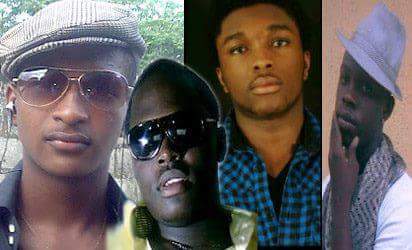The morning of October 5th, 2012 will remain fresh in my memory and the memories of thousands of the then students of University of Port Harcourt who heard of the murder of our fellow comrades in Aluu – an adjoining community that borders the University to the South.
Aluu, an off-campus favourite for many of the students prior to the unfortunate incident, has always held bad tales of murder, robbery, rape, cult activities and other sundry ills that characterised a dysfunctional society. Students who lived in that area were always viewed from a certain perspective unlike those who lived in Alakahia and Choba.
The fact that authorities in the University of Port Harcourt failed to construct hostels for thousands of the students, made living in these areas inevitable. The school authority is notorious with its perchance of chasing students who occupied the very few hostels the University boasts of, out of these hostels, sometimes using the military to effect the plan.
Even in the communities where students are forced to shell-out at least 150 000 for a decent self-contain apartment, houses are scarce due to the high demand by students. It might also interest you to note that top members of the University’s governing body benefit from this anomaly by building private hostels in those communities.
The University of Port Harcourt, when the unfortunate Aluu 4 incident happened, denied knowledge of the students. The University’s public relations officer, William Wordi, in a statement said that the murdered students were not students of the institution. The school would later retract the statement due to public uproar but claimed that the ugly incident took place outside the University’s jurisdiction forgetting that it created the monster in the first place.
That incident would perhaps be the only thing the administration of Prof Joseph Ajienka who was the University’s Vice-Chancellor then, will be remembered for.
Days after visual clips of that killings shocked the world, the Aluu community came out to say that the suspects were not indigenes of Aluu but were mainly settlers. This notion is still being spearheaded today by Aluu community’s intelligentsia.
However, it is on record that the students were murdered by a vigilante group in the community who said they were caught while trying to rob someone – what they were doing or planning to do before their murder is immaterial at the moment as it has been overtaken by a bigger crime.
But if the killers were not indigenes of the community, what did the community do to stop its name from being soiled by non-indigenes? Nothing!
The students protested a week later, backed up by the South-South zonal leadership of National Association of Nigerian Students, NANS. However, it was like trying to cure a dead horse of the ailment that killed it.
What is most intriguing is that the issues that led to the murder of the students are still there and have not been addressed.
The Nigerian judiciary, slow as it is in delivering judgement, found 4 persons in connection with the murder guilty and sentenced them to death.
However, they have been given the option of an appeal and so, the case will likely linger for another ten years before the fate of those mindless killers is determined.
Okenyi Kenechi writes from Port Harcourt




